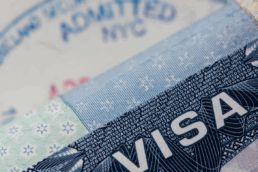On March 3, 2017, U.S. Citizenship and Immigration Services (USCIS) announced that beginning on April 3, 2017 it will suspend premium processing on all H-1B Petitions for up to six months.
What is Premium Processing Service?
USCIS currently offers a Premium Processing Service that allows payment of a fee to get a guaranteed faster processing time in many employment-related types of applications.
Under this program, USCIS guarantees a response to the Petition within 15 calendar days of receipt. USCIS will issue either an approval, denial, or a request for additional evidence (RFE) or notice of intend to deny (NOID) within 15 days. If an RFE or NOID is issued, USCIS 15 calendar day clock resets after the agency receives a response from the petitioner or applicant.
Premium processing can be requested by paying a $1225 fee along with submitting Form I-907 and it can be requested at the time of filing the case or upgraded at a later date.
Why is USCIS doing this?
USCIS is suspending premium processing in order to concentrate on adjudicating the significant backlog of pending H-1B. Additionally, as H-1B visa holders are automatically granted a 240 day extension from their expiration with a timely filed H-1B extension Petition, USCIS is suspending the premium processing service to ensure that extension cases are adjudicated within the 240 day time frame.
What are some of the impacts of the suspension?
Employers needing to change an individual from one visa category to another will be impacted. The 240 day extension applies only to H-1B extension petitions, and not to change of status from other visa categories, such as the F-1 or J-1.
F-1 visa holders currently on Occupational Practical Training (OPT) are granted Cap Gap extension to bridge their status from the date of expiration to October 1st, the first day of the new fiscal year when H-1B Cap Visas go into effect. However, Cap Gap automatically ends on October 1st, even if the H-1B Petition is still pending. Potential H-1B visa holders who have Cap Gap employment authorization and a still pending H-1B Cap petition on October 1st, will need to stop work immediately until the H-1B is approved.
Travel may also be disrupted due to processing times, as an H-1B visa holder may not return to the U.S. without an approved H-1B visa even within the approved 240 day extension.
What is the normal length of H-1B processing if premium is not selected?
USCIS most recently update processing times on December 31, 2016. As of December 31, 2016, current processing times for the California Service Center were approximately six months andcurrent processing times for the Vermont Service Center were approximately eight to ten months. Processing times are subject to change and are dependent upon USCIS workflow.
What if my case is filed with premium processing, but not completed before April 3rd?
USCIS has indicated that the suspension applies to H-1B petitions filed on or after April 3rd. We anticipate that all premium processing cases filed before that date will continue to be processed with premium processing even if a decision is not reached on the case until after April 3rd.
USCIS also noted that it will refund premium processing fees if it is unable to adjudicate a case within 15 days. This is always USCIS policy for premium processing and does not reflect a change from the norm.
What types of H-1B cases are included in the Premium Processing suspension?
All H-1B Petitions filed on or after April 3, 2017, including all Cap cases, are included in the suspension.
Can I work for my employer while my H-1B application is processing?
H-1B extension applicants are authorized to work for 240 days while an H-1B extension application is pending. USCIS has been taking more than 240 days for H-1B extensions in recent months but has not clarified its position regarding whether employing individuals beyond 240 days is considered a violation of immigration law.
H-1B non-immigrants can also benefit from portability which allows them to work for a new employer while a change of employer H-1B petition is pending.
Those changing from another non-immigrant category to H-1B status may not begin work for the new employer until an H-1B change of status is approved or an H-1B classification petition is approved and the individual leaves the US, gets an H-1B visa (or, in the case of Canadian nationals, shows an approval notice at a port of entry) and reenters the US in H-1B status.
Some F-1 students on OPT may be able to continue working under Cap Gap rules which allow one to work with authorization while an H-1B change of status application is pending, but, as noted previously, Cap Gap is only authorized until October 1st.
What if I need to travel?
Unfortunately, while many are authorized to work while an H-1B extension or change of status application are pending, reentering the US will require an H-1B approval if the initial visa has expired, the H-1B non-immigrant has not previously received an H-1B visa, or the H-1B non-immigrants I-94 has expired. If travel is urgent, an expedite request regarding the H-1B application will be necessary.
Is there a way to get my case expedited if Ive got a good reason?
USCIS has a process to request expedited processing in urgent cases and will approve requests on a case-by-case basis. USCIS has stated that the requester has the burden of documenting one or more of the following apply to the Employer (Petitioner) or the Employee (Beneficiary):
Severe financial loss to company or person
Emergency situation
Humanitarian reasons
Nonprofit organization whose request is in furtherance of the cultural and social interests of the United States
Department of Defense or national interest situation (These expedite requests must come from an official U.S. government entity and state that delay will be detrimental to the government.)
USCIS error
Compelling interest of USCIS.
For more information, please visit: https://www.uscis.gov/forms/expedite-criteria
To request an expedite, Berardi Immigration Law will contact the National Customer Service Center (NCSC) and will write a letter to the Service Center explaining the reasons for the expedite request.
Please note, however, that this expedite process is the same one used for all applications, not specifically H1B visas, and that the criteria specified above is interpreted narrowly. Grants of expedite requests are not common.
If I filed my H-1B case before April 3rd using regular processing, can I upgrade to premium processing after April 3rd?
No. USCIS has indicated that it will only premium process cases if an I-907 was submitted before April 3rd.
Ready to have Berardi on your side?
Whether you’re a business looking to hire or a professional hoping to relocate, immigration law can be complicated. But you don’t have to do it alone. Put our experience to work for you.


